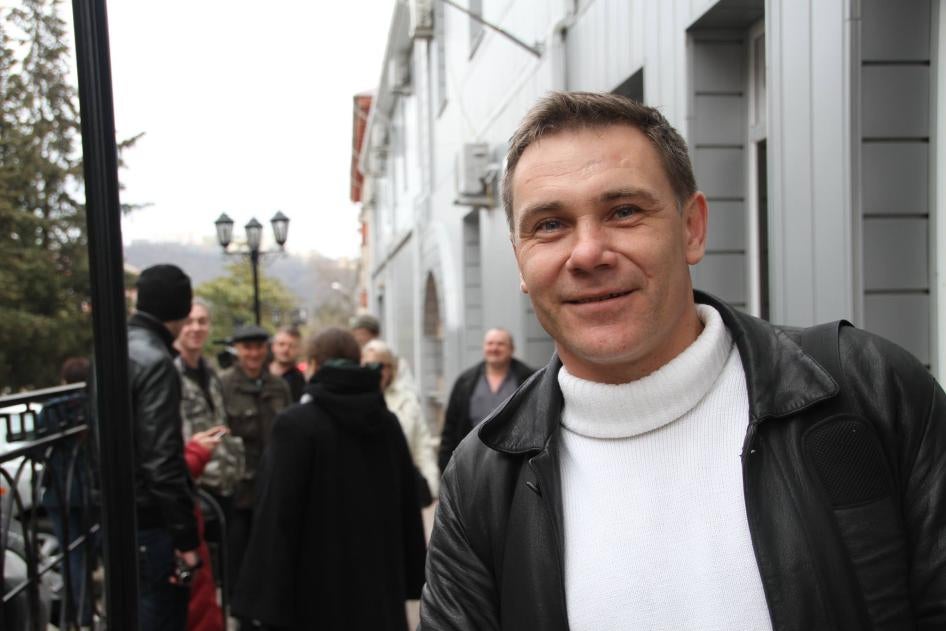UPDATE: Evgeny Vitishko was released on December 22, 2015.
Evgeny Vitishko’s four-year ordeal started with wildly disproportionate charges for graffiti in Russia’s southern Krasnodar region, home of the 2014 Winter Olympic Games. It could end tomorrow, when a court hearing is scheduled to determine whether he can be released from a prison colony, where has served almost two years, each day an injustice.
Vitishko should already be free – in November a court approved early release, but a prosecutor filed a last-minute challenge the day before his scheduled release, claiming new hearings were needed to determine to which address Vitishko would be released. This cruel and vindictive ploy is consistent with way the authorities have treated his case from the beginning.
In June 2012, Vitishko and a co-defendant were found guilty of painting “This is our forest” on a fence surrounding a construction site that was in a public forest. Vitishko is a 42-year-old geologist and an outspoken activist with Environmental Watch on the North Caucasus, which in the lead-up to the 2014 Winter Games protested against the construction of Olympic-related infrastructure in federally protected nature zones. “Alex” referred to Alexander Tkachev, then-governor of Krasnodar region (and now Russia’s minister of agriculture). The fence surrounded an area where Tkachev’s dacha is located.
The court sentenced Vitishko and his codefendant, Suren Gazaryan, to a conditional three-year term, meaning they could avoid prison if they adhered to a curfew and other limits on their movements. Gazaryan has since faced further bogus criminal charges, received asylum abroad, and now lives in exile.
The events that followed made it abundantly clear the case was little more than an exercise in punishment for Vitishko’s activism. Six months later, a judge on dubious grounds slapped more restrictions on Vitishko for allegedly violating his curfew.
In November 2013, as the games approached, police briefly detained Vitishko as part of a broader sweep against Environmental Watch activists, again claiming he had violated his curfew. A few weeks later, a court converted Vitishko’s conditional sentence to an active one, subjecting him to imprisonment. In February 2014, police arrested Vitishko – then at liberty, pending appeal. A court then sentenced him to 15 days’ detention for allegedly swearing in public. This kept him conveniently locked up not only prior to the Games but also to his appeal.
About a week into the Games, Vishko lost his appeal and was hauled off to the “settlement colony.”
Evgeny Vitishko has already lost 21 months of his life. He held a 20-day hunger strike after the prosecutors filed their objection. Soon, I hope, he will be free. But meanwhile, every second he spends in that colony is a cruel injustice.









